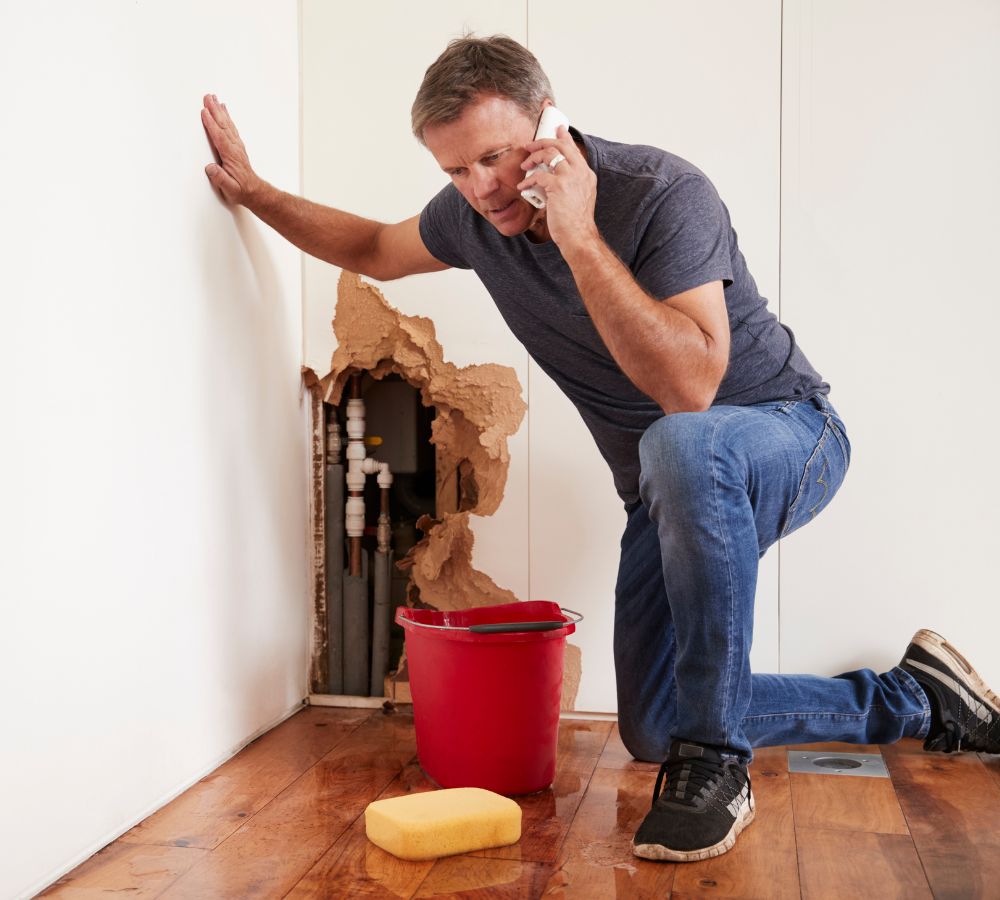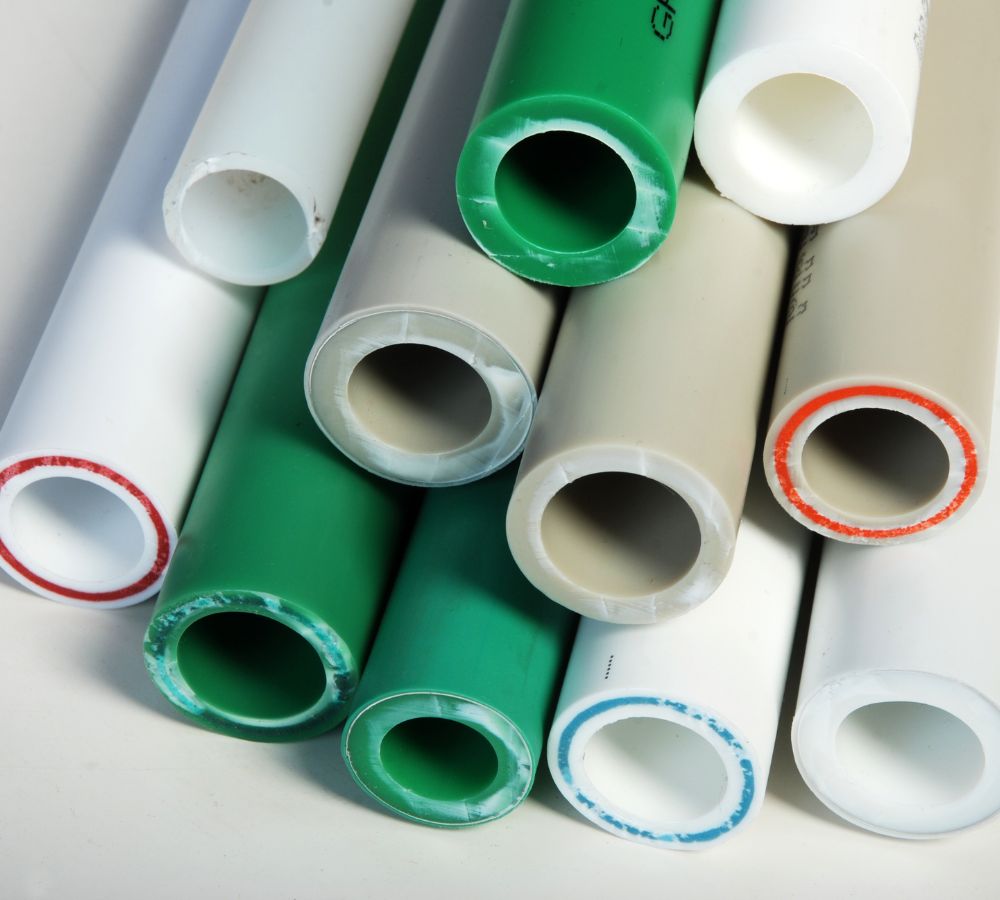Unveiling the Truth: Can Pipes Burst in Warm Weather?

Can pipes burst in warm weather. If you think burst pipes are a problem only during winter, think again. Warm weather can also cause pipes to burst, leading to serious damage to your home and costly repairs. Refrain from letting the misconception that burst pipes occur in winter lead you to believe your pipes are safe during hot temperatures.
Several factors can contribute to burst pipes in warm weather, including increased water pressure, aging pipes, and temperature fluctuations. This means that even if you live in a region with consistently warm temperatures, your pipes are not immune to bursting.
In warm weather, preventive measures such as insulation and regular maintenance are crucial. Additionally, knowing the signs of burst pipes, such as decreased water pressure and visible leaks, is vital to addressing issues promptly.
So, can pipes burst in warm weather? Absolutely. Don’t let this potential risk catch you off guard. Take proactive steps to protect your pipes and avoid burst pipes’ costly and destructive consequences in hot temperatures.
Table of Contents
Understanding the Vulnerability of Pipes in Warm Weather

While burst pipes are commonly associated with cold weather, they can also occur in warm weather. Pipes can be just as vulnerable during hot temperatures, so taking preventive measures to protect your plumbing system is crucial. Here’s what you need to know:
1. Factors Contributing to Pipe Vulnerability
Several factors can increase the risk of burst pipes in warm weather. One of the main culprits is increased water pressure. As the temperature rises, water expands, leading to a buildup of pressure inside the pipes. This pressure can cause cracks and leaks, ultimately resulting in burst pipes.
Additionally, aging pipes can become more susceptible to damage during weather conditions, including warm weather. Over time, pipes can deteriorate and weaken, making them more prone to cracks and leaks. Temperature fluctuations can also cause stress on pipes, contributing to their vulnerability.
2. Preventive Measures to Protect Your Pipes
The good news is that there are several measures you can take to prevent burst pipes in warm weather. Here are some tips:
- Insulate any exposed pipes to prevent them from overheating and expanding.
- Maintain proper ventilation in areas where pipes are located to reduce the risk of heat buildup.
- Monitor your water pressure regularly and address any unusual fluctuations immediately.
- Replace any aging pipes that may be at risk of damage.
By taking these steps, you can help protect your pipes from bursting during hot temperatures and save yourself from costly repairs.
The Science Behind Burst Pipes: Thermal Expansion
It’s a common misconception that pipes only burst in cold weather. However, pipes can also burst in warm weather due to a phenomenon known as thermal expansion. When water heats up, it expands, causing an increase in pressure inside the pipes. If the pressure becomes too high, the pipes may rupture.
Thermal expansion can also occur when there are sudden temperature changes, such as when hot water is suddenly turned off and cold water rushes into the pipes. This can cause the pipes to expand and contract rapidly, leading to stress on the pipe walls and potential damage.
It’s important to insulate the pipes properly to prevent burst water pipes in warm weather due to thermal expansion. Insulation can help regulate the temperature of the water, preventing it from getting too hot and expanding too much. Additionally, insulation can help avoid sudden temperature changes by keeping the pipes at a consistent temperature.
If you’re experiencing burst pipes in warm weather, it’s important to address it promptly to prevent further damage. Call a plumber to assess the situation and make any necessary repairs. Regular maintenance and inspections can also help identify potential issues before they become a problem.
Signs of Burst Pipes in Warm Weather

It’s important to know the signs that indicate a burst pipe in warm weather. Ignoring these signs can lead to more extensive damage and costly repairs. Here are some common signs to look out for:
- Decreased water pressure: If you notice a significant drop in water pressure, this could indicate a burst pipe. This is because water leaks from the damaged area, reducing water flow through your pipes.
- Unusual sounds: If you hear banging or whistling noises from your pipes, this could signify a burst pipe. This is caused by the water leaking out of the damaged area and creating air pockets within your pipes.
- Visible leaks: If you see water stains on your ceiling or walls, this could signify a burst pipe. The water leaks from the damaged area and seeps through your walls and ceiling.
If you observe any of these indications, acting fast is important to prevent further damage. Turn off your main water supply and call a plumber to assess the issue. Remember, taking preventive measures and addressing pipe issues can save you time, money, and stress in the long run.
Taking Preemptive Measures: Insulating and Maintaining Pipes
Preventing burst pipes in warm weather requires proactive measures to protect your piping system. Insulating pipes is one way to defend against potential damage; this helps regulate temperature fluctuations and decreases the likelihood of thermal expansion. Additionally, proper ventilation is crucial to prevent overheating and ensure air circulates throughout the home.
Regularly monitor your water pressure and seek professional assistance if you notice any irregularities. Avoid using harsh chemicals in your pipes, as these can have corrosive effects that damage pipe integrity over time. Instead, consider using natural remedies to clean your pipes gently.
Another way to prevent burst pipes in warm weather is to maintain proper temperature settings, even when you’re away. Ensure your thermostat is appropriately set, particularly if you plan on leaving for an extended period. Remember to keep your home at a minimum of 55 degrees Fahrenheit to prevent pipes from freezing and potentially bursting.
Taking preemptive measures ensures you don’t have to deal with the costly and frustrating consequences of burst pipes. Insulating pipes, maintaining proper ventilation, and monitoring water pressure can help protect your plumbing system and prevent burst pipes in warm weather.
Seeking Professional Help: When to Call a Plumber

In some cases, burst plumbing pipes in warm weather can be a serious issue that requires professional assistance. While homeowners themselves can resolve some minor pipe issues, there are certain situations where you should be quick to call a plumber.
If you notice extensive leaks, frozen pipes, or water damage caused by burst pipes, it is important to seek the help of a professional plumber immediately. A burst pipe can cause significant damage to your home’s structure, furniture, and personal belongings, which can result in costly repairs. Ignoring the issue can lead to further damage and danger to your family.
Regular maintenance and inspections are the best way to prevent burst pipes. If you have an older home or outdated plumbing system, it is recommended to be inspected more frequently because older pipes are more prone to bursting. A plumber can also recommend upgrades and replacements to ensure the integrity of your plumbing system and prevent future issues; if you suspect a burst pipe, immediately turn off the water supply and call a licensed plumber.
Common Misconceptions About Burst Pipes in Warm Weather
It’s a common misconception that burst pipes only happen in cold weather. However, the truth is that pipes can burst in warm weather, too. Heat can cause the water inside the pipes to expand, increasing pressure and causing potential damage.
It’s important to take preventive measures to protect your pipes from bursting, regardless of the season. Remember to consider the risk of burst pipes in hot temperatures.
Factors such as temperature fluctuations, aging pipes, and increased water pressure can make your pipes vulnerable to bursting in warm weather. Therefore, taking the necessary precautions to prevent any potential damage is crucial.
Look for signs of burst pipes, such as decreased water pressure, unusual sounds, and visible leaks. Addressing these signs can save you from further damage and costly repairs.
Remember that proper insulation is also essential to mitigate the risk of burst pipes in warm weather. Insulating exposed pipes and maintaining proper ventilation can go a long way in preventing potential pipe issues.
Stay vigilant and proactive in protecting your pipes from bursting in warm weather. Burst pipes can cause significant damage and expense, so taking preventive measures and seeking professional help when necessary is important. Don’t let common misconceptions fool you; burst pipes can happen in warm weather, too.
The Cost of Burst Pipes: Understanding the Potential Damage
When pipes burst in warm weather, the potential damage can be extensive, resulting in costly repairs and replacements. Burst water pipes in warm weather can cause damage to the structure of the home, furniture, and personal belongings. The water damage can also lead to mold growth, which poses health risks for residents.
It is essential to take preventive measures to avoid burst plumbing pipes in warm weather and the associated expenses. Homeowners insurance may partially or fully cover the costs of repairs, but it is still important to address the issue promptly to minimize further damage.
The cost of burst plumbing pipes in warm weather can also affect your daily routine. You may be forced to find alternate living arrangements while repairs are being made, which can cause significant inconvenience and additional expenses.
Avoiding the more cost has proactive steps must be taken to maintain and protect your plumbing system. Regular maintenance and inspections can address potential issues before they become significant problems. Upgrading and replacing old pipes, especially those made of outdated materials, can be a long-term solution that saves costs and avoids potential burst pipes in the future.
Long-Term Solutions: Upgrading and Replacing Old Pipes

Living in an older home may make your plumbing system more vulnerable to burst pipes in warm weather. Outdated pipes made of galvanized steel or polybutylene are more prone to corrosion and leaks, which can lead to burst pipes. Replacing or upgrading old pipes can be a long-term solution to prevent burst plumbing pipes in warm weather.
Replacing old pipes with newer materials such as copper or PVC can also increase the durability and lifespan of your plumbing system. These materials are less likely to corrode or leak, reducing the risk of burst pipes in the long run.
If you are considering upgrading your plumbing system, it’s important to consult with a professional plumber who can assess your current system and recommend the best course of action. While upgrading your pipes may come with an initial cost, it can save you money in the long run by preventing burst water pipes in warm weather and reducing the need for frequent repairs.
Proper maintenance and regular inspections can also help identify potential issues with your plumbing system and allow for preventative measures to be taken. Proper ventilation and water pressure monitoring can also help prevent burst pipes in warm weather.
Investing in long-term solutions such as upgrading and replacing old pipes can provide peace of mind and help prevent the costly damage and inconvenience of burst plumbing pipes in warm weather.
Tips for Travelers: Protecting Pipes During Absence
Going on a vacation during warm weather is a great way to enjoy the sunshine and escape daily routines. However, it’s important to ensure the safety of your home before leaving, including protecting your pipes from potential bursts. Here are some easy and effective tips to prevent burst pipes during your absence:
- Turn off the main water supply: Shutting off the main water supply before leaving is the most effective way to prevent burst pipes. It ensures that no water can flow and cause damage while you’re away.
- Drain pipes: If you have a sprinkler system or pool, drain them before leaving. Turn on all the faucets and let them run until the water stops flowing to drain any remaining water from the pipes.
- Set thermostats: Maintaining a warm temperature inside the house, even in your absence, is essential. Set the thermostat at a minimum of 55 degrees Fahrenheit to prevent pipes from freezing.
- Ask a friend or neighbor for help: Ask a trusted friend or neighbor to check on your home periodically while you’re away. They can ensure everything is in order and alert you immediately if there are any issues.
Taking these simple precautions lets you have peace of mind during your vacation, knowing your pipes are protected from potential bursts and damage. Remember, preventing burst pipes in warm weather is crucial for your home’s safety and avoiding costly repairs.
Conclusion
Now that you know the truth about pipes bursting in warm weather, it’s important to take preventive measures to protect your home. Refrain from falling for the common misconception that burst pipes only happen in winter. The risks are just as high during hot temperatures.
Understanding the vulnerability of pipes in warm weather is crucial to avoid potential damage and costly repairs. Increased water pressure, aging pipes, and temperature fluctuations can all contribute to the risk of burst pipes. However, you can protect your pipes by insulating them, maintaining proper ventilation, and monitoring water pressure.


